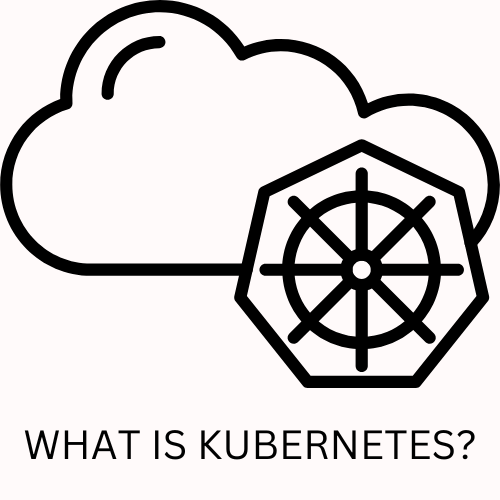What is Kubernetes?
Kubernetes, often abbreviated as k8s, is an open-source container orchestration platform that has revolutionized the deployment and management of containerized applications. Originally developed by Google engineers, Kubernetes addresses many challenges associated with running a microservices architecture in production environments. By automating tasks such as scaling, self-healing, load balancing, and rolling updates, Kubernetes has become a critical tool for modern DevOps teams.
Since its open-sourcing in 2014 under the stewardship of the Cloud Native Computing Foundation (CNCF), Kubernetes has been widely embraced by developers and organizations to streamline the orchestration of container-based systems. In this article, we’ll explore Kubernetes fundamentals and its role in modern application development.

From Docker to Kubernetes: A Symbiotic Relationship
Docker and Kubernetes are often mentioned together, but they serve distinct roles. Docker is a container runtime engine that creates and manages containers, while Kubernetes orchestrates the deployment, scaling, and management of these containers across clusters.
When Kubernetes initiates a deployment, it instructs Docker to run specific containers. Unlike manual scheduling by DevOps engineers, Kubernetes automatically determines the optimal scheduling and distribution of pods (Kubernetes’ fundamental building blocks). This synergy highlights Kubernetes as the orchestrator and Docker as the runtime engine, a relationship that simplifies the complexities of microservice deployment.
Kubernetes vs. Docker Swarm vs. Apache Mesos: Choosing the Right Tool
As container orchestration technologies have evolved, the choice between Kubernetes, Docker Swarm, and Apache Mesos has become more about specific needs and preferences. Let’s break down these options:
Docker Swarm
Docker Swarm extends Docker’s capabilities with native orchestration features. It is an intuitive choice for developers already using Docker, thanks to its seamless integration with Docker Compose files. However, Docker Swarm’s ecosystem is more tightly coupled with Docker’s suite of tools, which can limit flexibility compared to Kubernetes. For those seeking an easy setup and compatibility with existing Docker workflows, Docker Swarm is a strong contender.
Kubernetes
Kubernetes stands out as the de facto standard for container orchestration, thanks to its robust open-source community and feature-rich ecosystem. Initially based on Google’s internal tool, Borg, Kubernetes was donated to CNCF in 2014 and has since become a cornerstone of cloud-native application development.
Kubernetes offers:
-
A thriving community backed by Google, Red Hat, and CoreOS.
-
Advanced tools such as Helm, Istio, and Spinnaker for seamless development and deployment.
-
Portability and reliability that support hybrid cloud and multi-cloud models, reducing vendor lock-in.
With its focus on scalability, reliability, and portability, Kubernetes is the preferred choice for enterprises seeking a comprehensive orchestration solution.
Apache Mesos
Apache Mesos predates Kubernetes and Docker Swarm as a cluster management solution. Unlike Kubernetes, Mesos was designed to handle diverse workloads, including legacy monoliths, batch jobs, and stateful data workloads. Mesos excels in managing data-intensive applications like HDFS and Cassandra, making it a great choice for scenarios where data integrity is critical.
Mesos also includes Marathon, a service orchestration tool often compared to Kubernetes and Docker Swarm. However, Mesos is less container-centric, focusing instead on abstracting and scaling diverse workloads across datacenters.
Why Kubernetes Leads the Pack
Proven Expertise: Kubernetes benefits from Google’s unparalleled experience running billions of containers daily.
Extensive Community Support: Kubernetes is one of the most active projects on GitHub, with contributions from major tech players and a global community.
Feature-Rich Ecosystem: Kubernetes APIs, coupled with tools like Helm and Istio, allow developers to focus on code without worrying about infrastructure complexities.
Hybrid and Multi-Cloud Support: Kubernetes enables cluster federation and hybrid cloud deployments, ensuring portability and reducing the risk of vendor lock-in.
Final Thoughts
Kubernetes has reshaped the landscape of container orchestration, offering unparalleled scalability, reliability, and flexibility. Whether you are transitioning from Docker Swarm, exploring alternatives to Mesos, or starting fresh with microservices, Kubernetes provides a robust solution to streamline your development pipeline.
As the ecosystem continues to grow, investing time in learning Kubernetes will undoubtedly pay dividends in managing containerized applications efficiently. Embrace Kubernetes to unlock the full potential of your cloud-native journey.






Leave a Reply